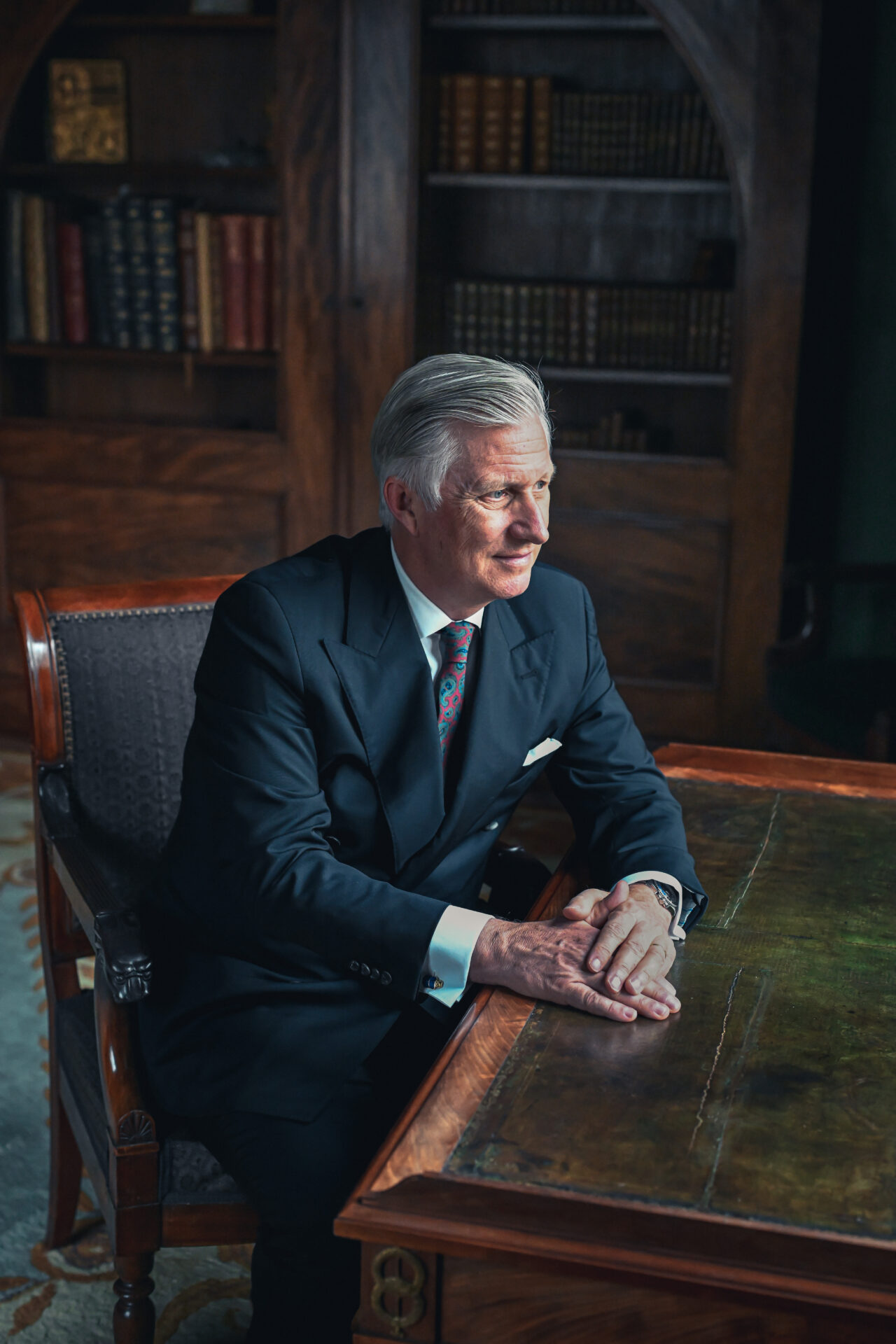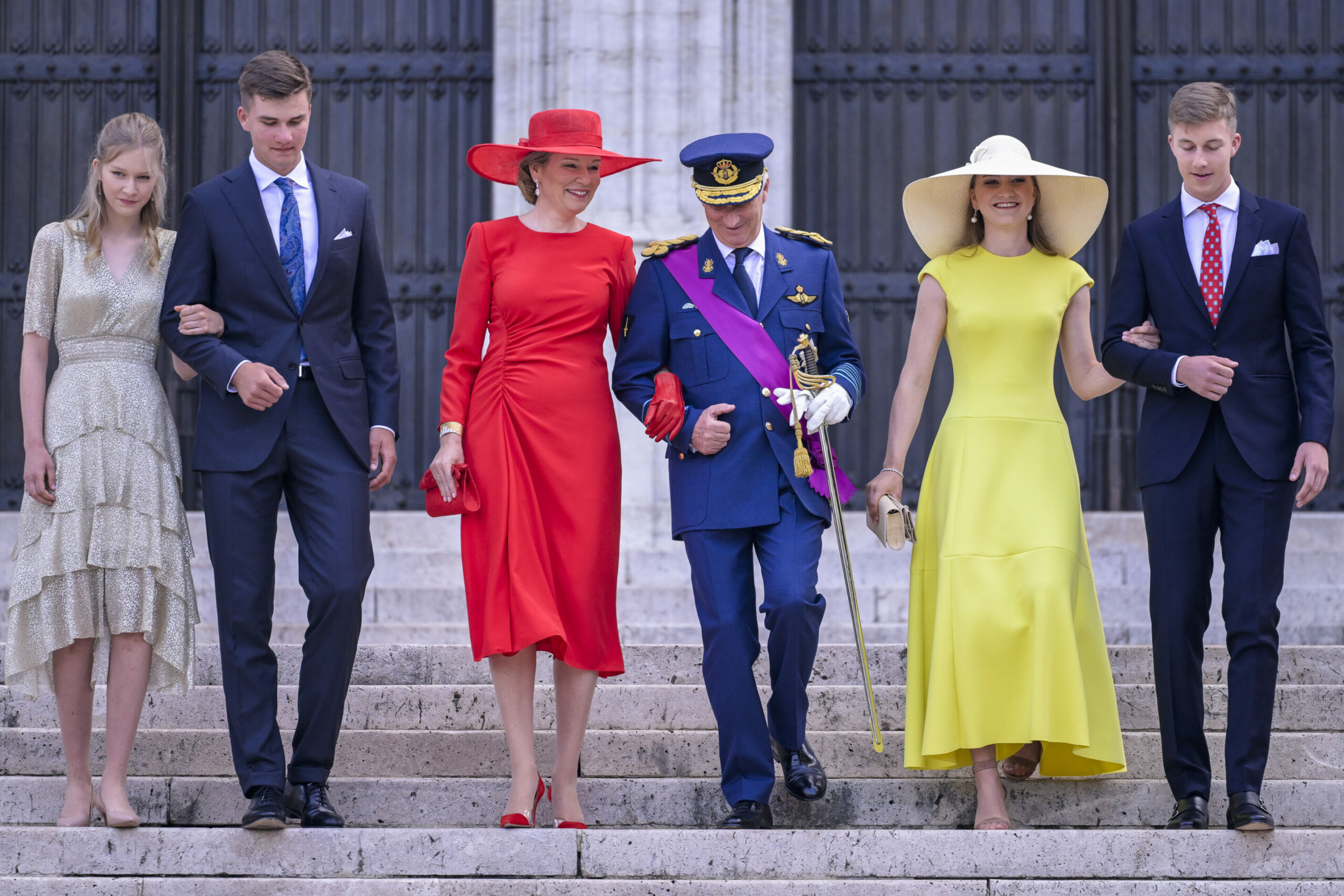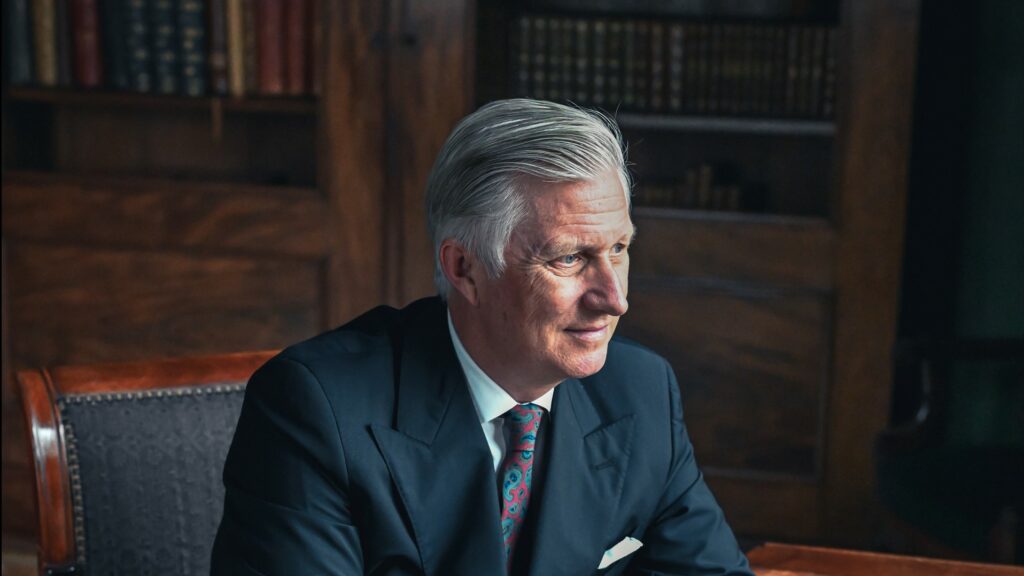Belgium's King Philippe is blowing out 65 candles on Tuesday. Contrary to the all-orange King's Day celebration for the Dutch monarch's birthday in the Netherlands, the occasion passes without much ado in Belgium.
At 65 years old, the seventh King of the Belgians (born Philippe Léopold Louis Marie on 15 April 1960) has been on the throne for more than a decade – since 21 July 2013. To mark his birthday, the Palace has released a new photo of the King.
As is well-documented in the Belgian press, Philippe had quite a difficult childhood due to the rocky marriage of his parents, King Albert and Queen Paola. He and his siblings, Astrid and Laurent, grew up in a loveless home, which included a near-divorce and an extramarital daughter.
Since then, Philippe has come a long way. Despite initial doubts about his abilities, he has had a near-flawless track record since he was sworn in.

New image of King Philippe, on the occasion of his 65th birthday. Credit: Royal Palace/Bas Bogaerts
While he is a native French speaker, Philippe gives official speeches in both Dutch and French (and his traditional Christmas message is always recorded in German as well). It was often said that his Dutch – much like his body language – was a bit stiff and uneasy at the start of his reign, but this has changed as he has grown more comfortable in his role over the years.
Philippe was the first Crown Prince who did not receive a private education, but instead chose to follow a regular (and bilingual) educational path in primary and secondary schools in Belgium.
He began his university studies at the Royal Military Academy at 18 years old. He chose to join the Air Force and qualified as a fighter pilot, while also obtaining certification as a parachutist and a commando.
Following his military training, he went abroad to continue his studies: he spent a term at Oxford University (UK) and then two years at Stanford University (US). He obtained a Master's in Political Science.
Modernising the monarchy
On the occasion of being on the throne for ten years in 2013, a survey showed that over half of the population (55%) is "fairly or very satisfied" with how Philippe has fulfilled his role, with 62% of those surveyed feeling that he had developed "rather or very positively."
The King and his wife are often given credit for modernising the Belgian monarchy (including an ever-increasing social media presence), as well as playing an active role in many political decisions and complex diplomatic cases.
While the King's role is largely ceremonial, he played an important part in securing face masks during the Covid-19 pandemic, and helping to release aid worker Olivier Vandecasteele from Iran.
He also managed to kickstart the debate on reparations with the Democratic Republic of the Congo (DRC) after unexpectedly sending a letter to Congolese President Félix Tshisekedi on the 60th anniversary of the country's independence. In it, he expressed his "deepest regret" for the "colonial cruelties" committed under the reign of Leopold II. During a visit to the country two years later, he repeated that sentiment in a speech in front of the Congolese Parliament.

From left: Princess Eleonore, Prince Gabriel, Queen Mathilde of Belgium, King Philippe of Belgium, Crown Princess Elisabeth and Prince Emmanuel pictured during the military and civilian parade on the Belgian National Day, in Brussels, Friday 21 July 2023. Credit: Belga/Laurie Dieffembacq
Additionally, as he grows more comfortable in his role as King, he is adding a number of subtle nods to Belgium's popular culture to his reign, such as allowing Brussels DJ Lost Frequencies to perform on the roof of the Royal Palace, or appearing in a playful clip to warm up the country for the World Cup in a commercial with the Red Devils.
He is also known to be very sportsmanlike: he has ran the 20 km of Brussels, while images of him kite-surfing have also been circulated.
As a result, the rigid image of the Royal Palace has changed. Now, the family often opts for a more open, modern and warmer way of communicating – something that many have attributed to his wife, Queen Mathilde.
Philippe has been married to Mathilde d'Udekem d'Acoz since 1999. Together they have four children: Elisabeth (who is next in line for the throne), Gabriel, Emmanuel and Eléonore. Philippe profiles himself as a family man, and he and his wife did their best to ensure their children were shielded from public scrutiny as much as possible while growing up.
Being himself
Still, he has shown himself to be a proud father: he was visibly emotional during the National Day military parade when some of his children marched past, as well as at Elisabeth's graduation ceremony at Oxford University.
Additionally, Philippe also managed to put an end to the painful saga surrounding his half-sister Delphine Boël, his father's illegitimate daughter. As soon as the judge's ruling recognised her as the daughter of former King Albert II, Philippe invited her into his home – a decision that was greatly appreciated by the Belgian population.
While he will never be the most relaxed man, being King has definitely made him more spontaneous. "When I took the oath, I had the feeling that something clicked. I think people understood who I was a bit more. For me, that was [a relief]. Because I could be myself."

